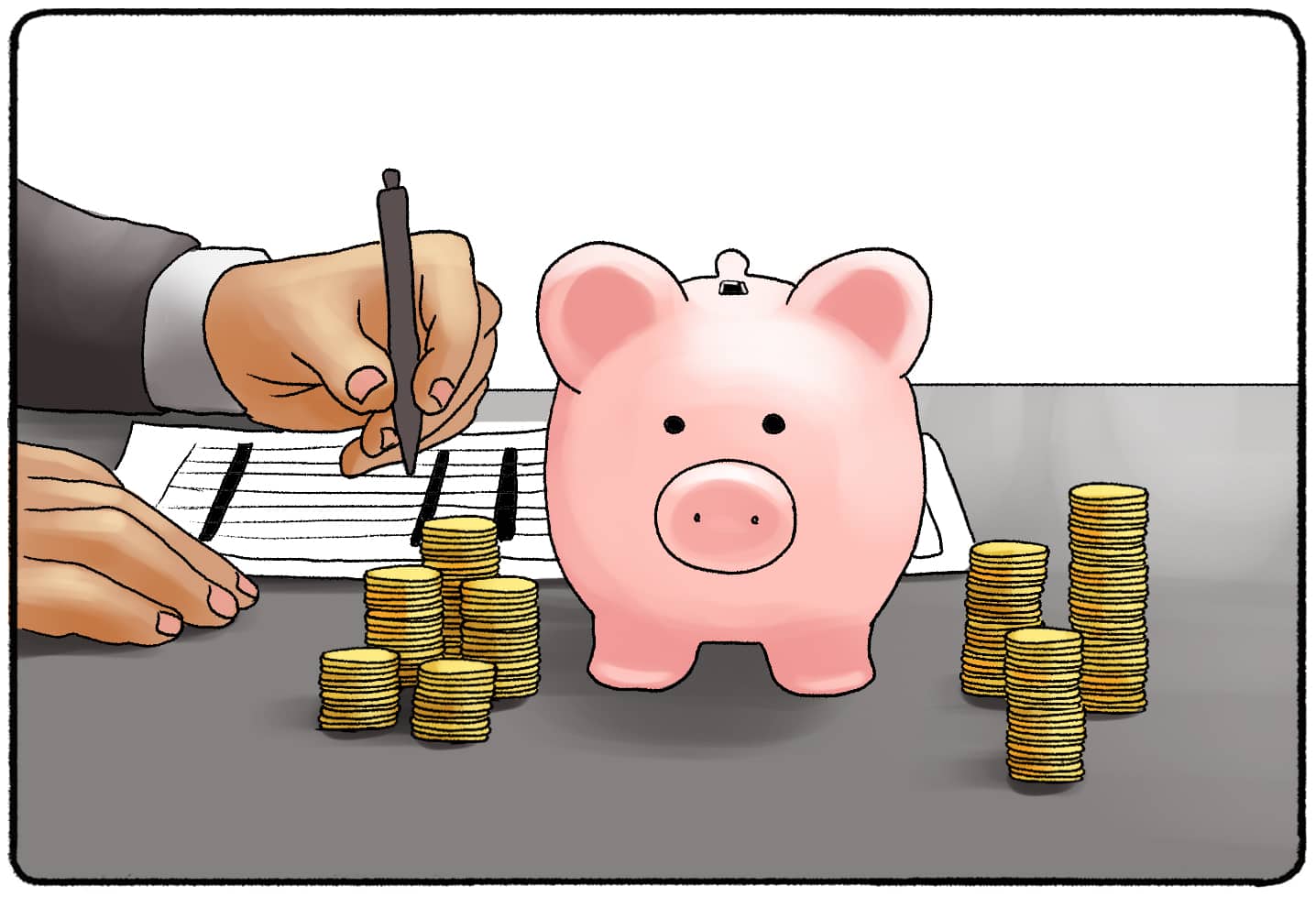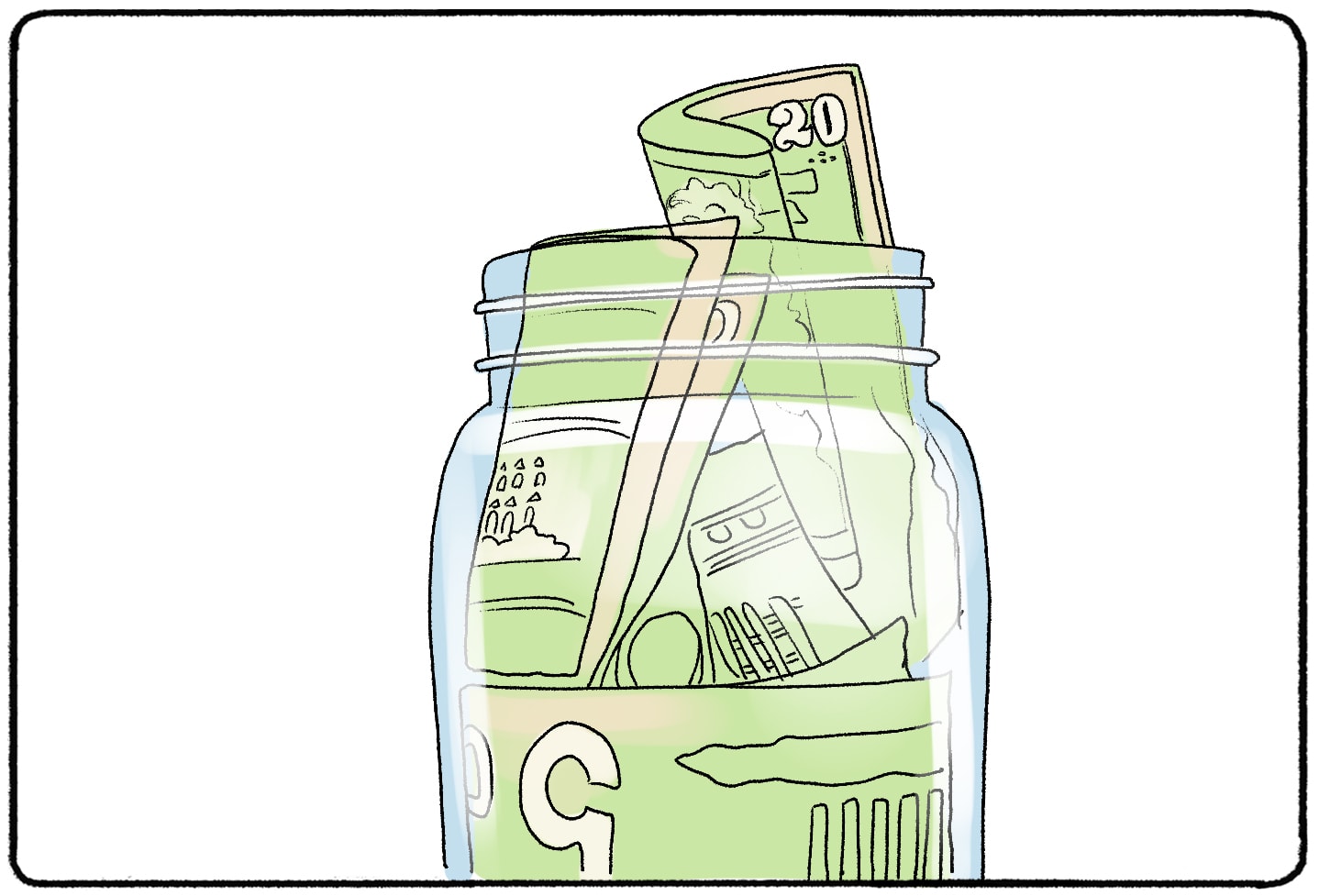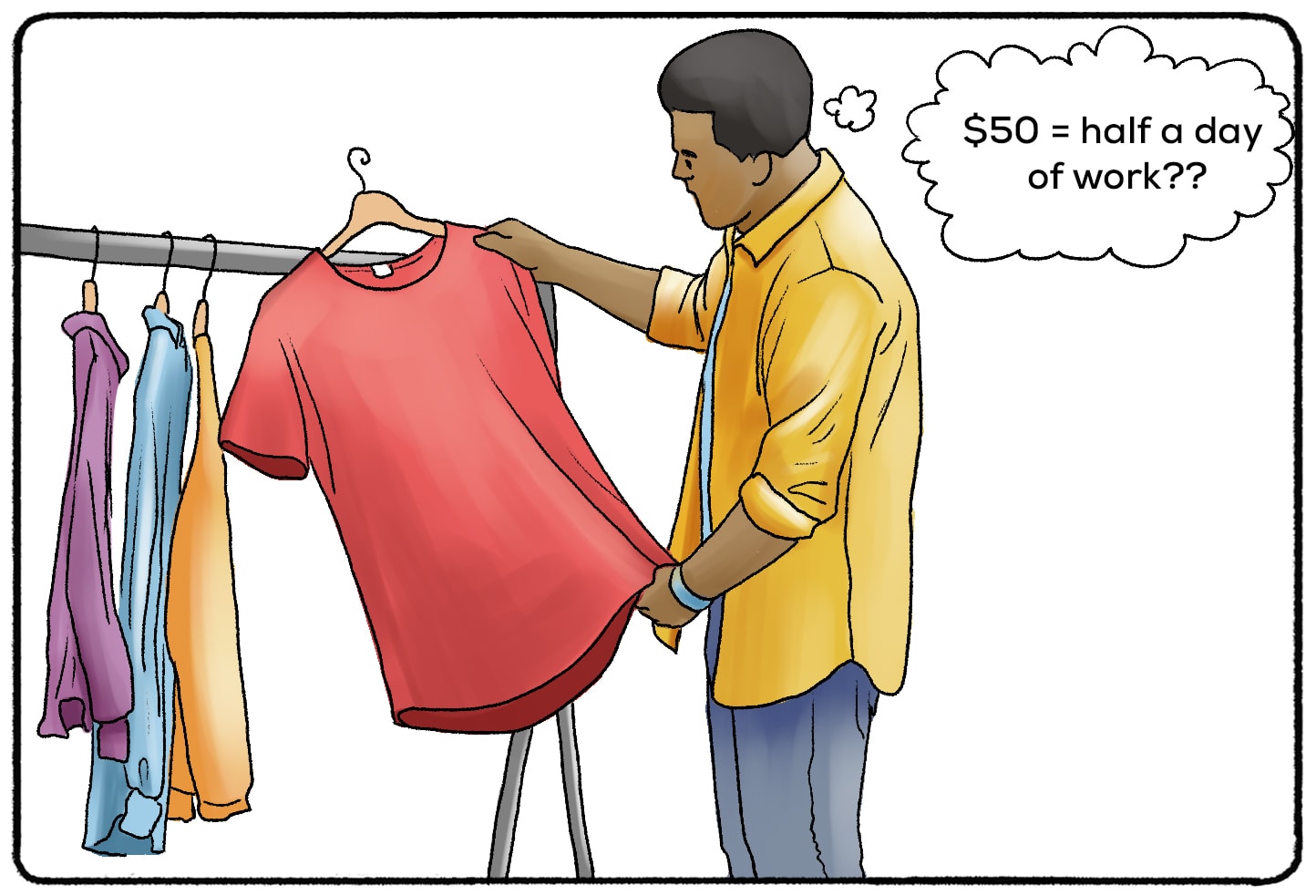Learning how to save money can be hard if you weren’t taught any great habits when you were younger. Spending money is a major factor that is affected by how our mind works, and knowing the psychology tricks behind this puts you a step ahead. Don't worry - I’m going to give you psychological money-saving tricks you can apply in your life to have more cash each month.
What Are My Best Money-Saving Tricks?
- Use cold, hard cash as much as you can
- Set up automatic deductions
- Write out your monthly statement
- Avoid advertising
- Delay your purchases
- Think about prices in hours
- Increase your income instead of reducing expenses
- Search for more tips through Reddit and other forums

1) Cash
So this is a big one. When you go out to eat somewhere, or buy groceries, or just to buy things, try to use cold hard cash instead of a debit card or check. When using cash, you have an emotional attachment to the physical material paper. It’s actually more painful to hand some cashier a $20 bill than it is to swipe a card, simply because it feels like you’re giving less when you swipe a card. Try to keep cash on you and limit that swiping. Bonus points if you only carry 100’s with you. Who’s going to break a clean crisp $100 bill for some gas station candy or milk at the grocery store? I know I wouldn’t.

2) Automatic deductions
This is an amazing tip because you can set it up to not even know the money is being taken out. Wherever you work, most places have the option to take a percentage or a certain amount out of your paycheck and add it to a separate account. Do this and send the money straight to a savings account you can’t withdraw from. After many years, and yes, becoming rich does take time, if there’s interest, you’ll have a ton of value from that simple $100 a month going into a savings account.
3) Monthly statement
“If you can’t measure it, you can’t manage it” was said by the famous Peter Drucker, and it’s true. I started a monthly balance sheet around 6 months ago and it’s amazing to see where your money goes once you start managing it. I spend way more money on little things like food and small gifts than I thought I did. Here’s how I do it, and I recommend you try it too:
- I write expenses on the top and add in my monthly payments like phone bill, rent, videoscribe, automatic savings deductions, loan payment, and other personal things I pay along with the date they are deducted.
- Below that I leave space for extra unpredictable things, like gas, or fast food, and even stuff like movie rentals and clothes.
- Right under that, I write my income. This is usually a pretty small space since I don’t have very many income sources at the moment.
- At the end of the month, you add up total expenses and income and add up your monthly profit or deficit. It definitely helps knowing that if you spend $8 on some food, you’ll have to write it down. Little things add up. Try it and it WILL help.
4) Avoid advertising
This is kind of a passive tip to save money, but try to avoid general advertising. This will reduce your likelihood of impulse buying stuff like an extra pack of gum at the cashier stand or that super awesome coffee cup that doesn’t tip over you think you need. Reducing exposure to this type of content will reduce what you think you need.
5) Now vs later
Have you ever thought you were super hungry at some point in your life? I bet if you drank a glass of cold water and waited 5 minutes, your temporary starvation feeling will subside. It’s super easy to trick our brain we need something NOW, and it takes practice to cultivate delayed gratification. You can do the same principle as food with your money. Instead of buying that super cool tech toy, wait a month and see if you still want it as bad. Chances are something new will come out that’s better or some other area you’ll notice that will be a better investment. Try to delay the things you spend your money on and you’ll notice extra money in your bank account each month!
6) Prices into hours
What I mean by this is to psychologically trick yourself into converting that $50 shirt into how many hours you would have to work for it. Would you go to work for 5 hours for that shirt? Probably not. Would you work half an hour for a burger? Yeah. What about working an entire week for a new TV? This goes into value investing and will help you and your brain understand the value of what you’re buying and the opportunity cost of what you’re buying.

7) Increase income instead of reduce expenses
So the last of my money-saving tricks is a mentality shift. If you’re saving money because you want to buy something, you the best advice I can give you is to focus more on how you can increase your income. Simply focusing on how you can make more money will help dramatically more than focusing on reducing your expenses. Back to that balance statement, beefing up that income spot by $300 a month will be way easier than cutting my phone, insurance, gas, and a couple of other leisure items. I bet you have a couple of hours in your life to spend working a bit more, if not at the company you’re employed at, working on your own life by starting a business or investing in your thoughts by reading.
More Money-Saving Tips
Reddit is a great source for all types of tricks and hacks, including tricks for saving money! The povertyfinance Subreddit asked users for their money-saving tricks, and here are some of the responses they recieved:
- "When you get paid, prioritize savings first, then bills, then spending money."
- "No car and no credit cards. It saves me a lot of money and trouble. Otherwise it is simply running a budget."
- "Automatic differal to my savings with direct deposit. Then don't touch it."
Happy saving!



